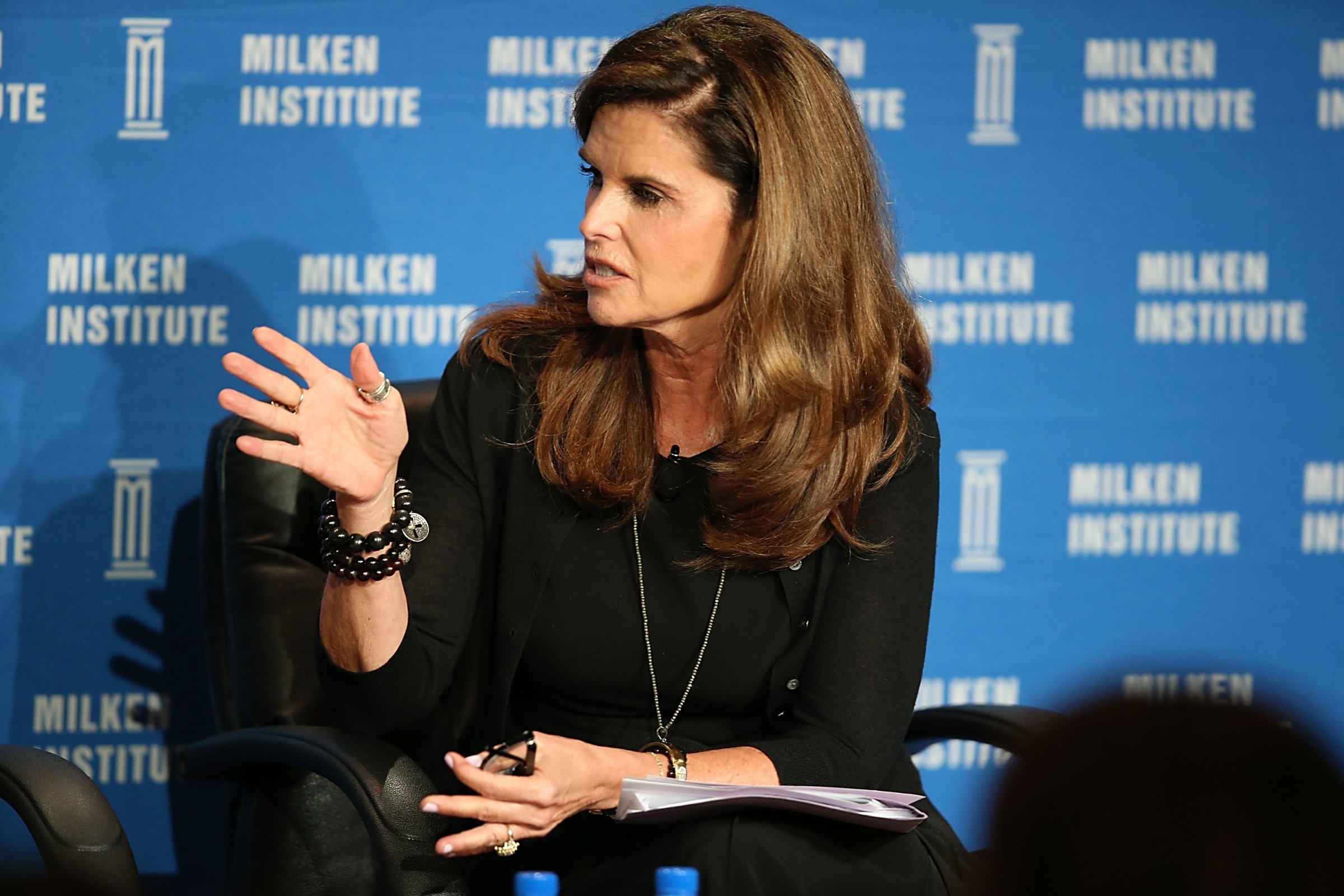
Each October, a parade of major American companies across the business spectrum unite to promote women’s health for Breast Cancer Awareness Month. But there’s not nearly as much corporate activism when it comes to another disease with a massive gender gap: Alzheimer’s. And that needs to change if there’s any hope for finding a cure, argues journalist and activist Maria Shriver.
Shriver, who describes herself as a “daughter of Alzheimer’s”—her father died from the disease in 2011—has dedicated her energy to fighting the degenerative illness through her organization, the Women’s Alzheimer’s Movement. She addressed attendees at the first-ever Fortune Brainstorm Health conference on Tuesday during a plenary session with Dr. Roberta Diaz Brinton, director of the Center for Innovation in Brain Science at the University of Arizona Health Sciences and University of Southern California Professor David Agus.
The session centered on the disproportionate toll that Alzheimer’s takes on women and the promise of data analytics to expose the risk factors for the disease. About two-thirds of American Alzheimer’s patients are women, Agus, the moderator, noted. Two-thirds of the caregivers overseeing Alzheimer’s patients are also women.
But Shriver also called out companies for not doing nearly as much to facilitate research and prevention strategies as they do for other conditions. “Corporate America hasn’t really stepped up on this disease like it has for cancer,” she said, adding that Alzheimer’s isn’t as “sexy” since there aren’t really survivors.
Shriver is trying to change that dynamic. Earlier this year, she launched an initiative with the Equinox Sports Club chain to promote “brain health” for women. “There were several people high up at Equinox whose parents had Alzheimer’s,” she explained, which made them amenable to the idea, despite being a gym.
But there are still plenty of ways corporate America can help tackle Alzheimer’s. “There’s a great opportunity for other companies to step up and say, ‘Women’s brains matter,’” said Shriver. One example could be more active involvement in funding research and awareness about the disease; another might include offering paid leave or compensation for employees who participate in Alzheimer’s clinical trials. Currently, these people generally have to take time off to help promote research.
The benefits would ultimately help men and women alike, since having a mother with Alzheimer’s is one of the major risk factors for children—sons and daughters—developing the disease, according to Dr. Brinton.
“If we save women’s brains, we’ll save men’s brains as well,” said Shriver.
This article originally appeared on fortune.com
More Must-Reads from TIME
- Donald Trump Is TIME's 2024 Person of the Year
- Why We Chose Trump as Person of the Year
- Is Intermittent Fasting Good or Bad for You?
- The 100 Must-Read Books of 2024
- The 20 Best Christmas TV Episodes
- Column: If Optimism Feels Ridiculous Now, Try Hope
- The Future of Climate Action Is Trade Policy
- Merle Bombardieri Is Helping People Make the Baby Decision
Contact us at letters@time.com